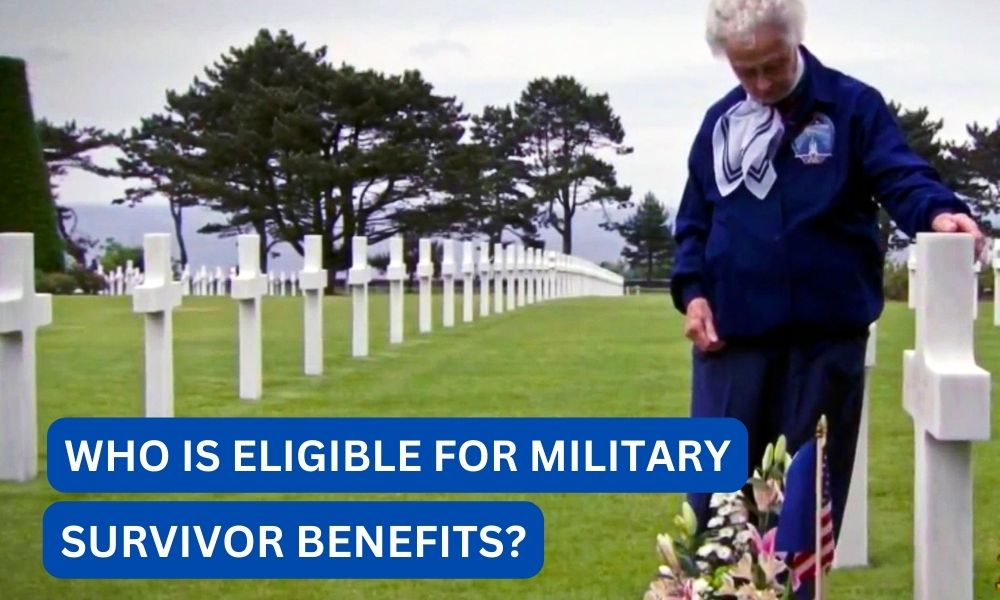The loss of a loved one who served in the military can be a difficult and emotional experience. In addition to the emotional toll, there are also practical considerations that must be addressed, such as financial support for surviving family members. This is where military survivor benefits come into play. These benefits are designed to provide financial assistance to the families of service members who have died while on active duty or as a result of a service-related injury or illness. However, not everyone is eligible for these benefits. In this article, we will explore who is eligible for military survivor benefits and what these benefits entail.
Contents
Who is Considered a Survivor?
Before delving into the specifics of eligibility, it is important to define who is considered a survivor in the eyes of the military. According to the Department of Defense, a survivor is defined as “a person who is entitled to receive a benefit or payment under a law administered by the Department of Veterans Affairs (VA) based on the service of a deceased veteran.” This includes spouses, children, and dependent parents of the deceased service member.
Spouses
Spouses of deceased service members are eligible for military survivor benefits if they were legally married to the service member at the time of their death. This includes both opposite-sex and same-sex marriages, as long as they were legally recognized at the time of the service member’s death. However, there are some exceptions to this rule. If the service member was married multiple times, the surviving spouse may not be eligible for benefits if they were not married to the service member for at least one year before their death. Additionally, if the marriage ended in divorce before the service member’s death, the surviving spouse may not be eligible for benefits.
Read:Is a pension a defined benefit plan?Children
Children of deceased service members are also eligible for military survivor benefits. This includes biological children, adopted children, and stepchildren. However, there are some requirements that must be met in order for a child to be eligible for benefits. The child must be under the age of 18, or under the age of 23 if they are enrolled in a full-time educational institution. Children who are permanently disabled and unable to support themselves may also be eligible for benefits regardless of age.
Dependent Parents
Dependent parents of deceased service members may also be eligible for military survivor benefits. In order to be considered a dependent parent, the parent must have been financially dependent on the service member for at least half of their support. Additionally, the parent must have no other means of support and must not have remarried.
Eligibility Requirements for Military Survivor Benefits
In order to be eligible for military survivor benefits, the service member’s death must have occurred while on active duty or as a result of a service-related injury or illness. This includes deaths that occur during training exercises, combat operations, or as a result of a service-related disability. However, there are some exceptions to this rule.
Read:Are social security disability benefits taxable?Active Duty Deaths
If a service member dies while on active duty, their surviving family members are automatically eligible for military survivor benefits. This includes a one-time death gratuity payment, which is currently set at $100,000. In addition, the surviving spouse and children may also be eligible for monthly Dependency and Indemnity Compensation (DIC) payments. These payments are based on the service member’s rank and years of service at the time of their death.
Service-Related Deaths
If a service member dies as a result of a service-related injury or illness, their surviving family members may also be eligible for military survivor benefits. However, in order to receive these benefits, the service member must have been on active duty for at least 30 days before their death. This requirement is waived if the service member’s death was the result of a combat-related injury or illness.
Benefits Available to Survivors
As mentioned earlier, survivors of deceased service members may be eligible for a one-time death gratuity payment and monthly DIC payments. In addition to these benefits, there are other benefits available to survivors, depending on their relationship to the service member.
Surviving Spouses
In addition to the death gratuity and DIC payments, surviving spouses may also be eligible for other benefits, such as the Survivor Benefit Plan (SBP) and the Civilian Health and Medical Program of the Department of Veterans Affairs (CHAMPVA).
Read:what is a friend with benefitsThe SBP is a program that provides a monthly annuity to surviving spouses of retired service members. This annuity is based on a percentage of the service member’s retirement pay and is paid out for the rest of the surviving spouse’s life. However, in order to receive this benefit, the service member must have elected to participate in the SBP and paid the required premiums.
CHAMPVA is a health care program that provides coverage for surviving spouses and dependent children of deceased service members. This coverage is similar to TRICARE, the health care program for active duty service members and their families.
Surviving Children
In addition to the DIC payments, surviving children may also be eligible for other benefits, such as the Survivors’ and Dependents’ Educational Assistance Program (DEA) and the Fry Scholarship.
The DEA program provides education and training opportunities to surviving children of deceased service members. This benefit can be used for degree and certificate programs, apprenticeships, and on-the-job training.
The Fry Scholarship provides education benefits to surviving children of service members who died in the line of duty after September 10, 2001. This benefit covers the cost of tuition and fees, a monthly housing allowance, and a stipend for books and supplies.
Surviving Parents
Surviving parents may also be eligible for benefits, such as the Parents’ Dependency and Indemnity Compensation (DIC) and the Civilian Health and Medical Program of the Department of Veterans Affairs (CHAMPVA).
The Parents’ DIC is a monthly payment made to parents of service members who died while on active duty or as a result of a service-related injury or illness. This benefit is based on the service member’s rank and years of service at the time of their death.
CHAMPVA, as mentioned earlier, provides health care coverage for surviving parents of deceased service members.
Applying for Military Survivor Benefits
In order to receive military survivor benefits, surviving family members must apply through the VA. The application process can be complex and may require the assistance of a VA representative. It is important to gather all necessary documents, such as the service member’s death certificate and marriage certificate, before beginning the application process.
It is also important to note that the application process may vary depending on the type of benefit being applied for. For example, the application process for DIC payments may be different from the application process for the SBP. It is recommended to seek guidance from a VA representative to ensure that all necessary steps are taken.
Conclusion:
The loss of a loved one who served in the military is a difficult and emotional experience. However, military survivor benefits can provide financial support to the families of deceased service members. Eligibility for these benefits is based on the relationship to the service member and the circumstances of their death. Survivors may be eligible for a one-time death gratuity payment, monthly DIC payments, and other benefits such as the SBP and CHAMPVA. It is important for surviving family members to understand their eligibility and the application process in order to receive the benefits they are entitled to.









